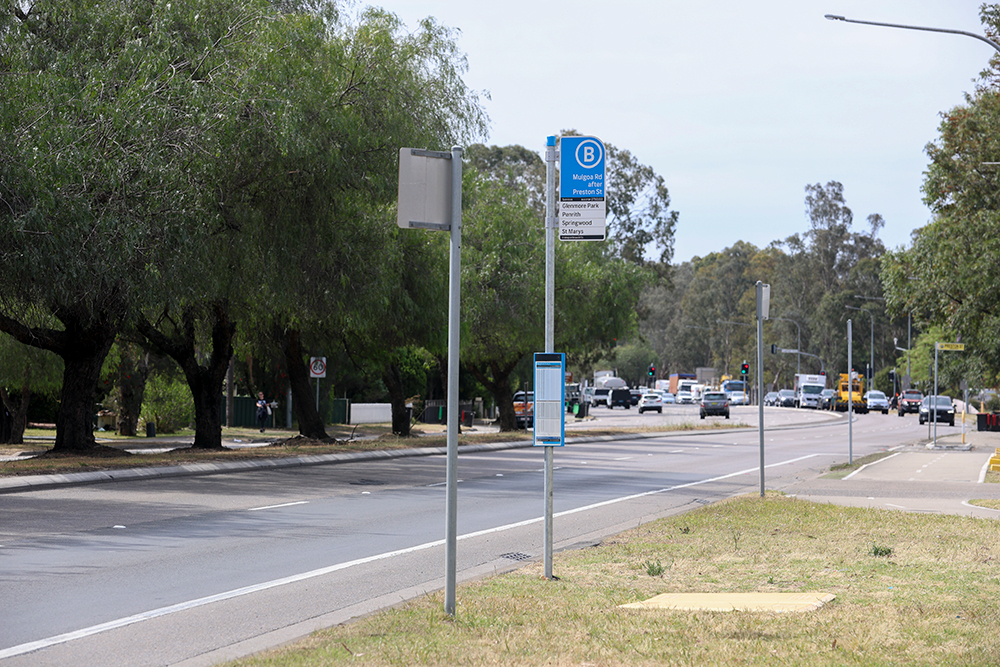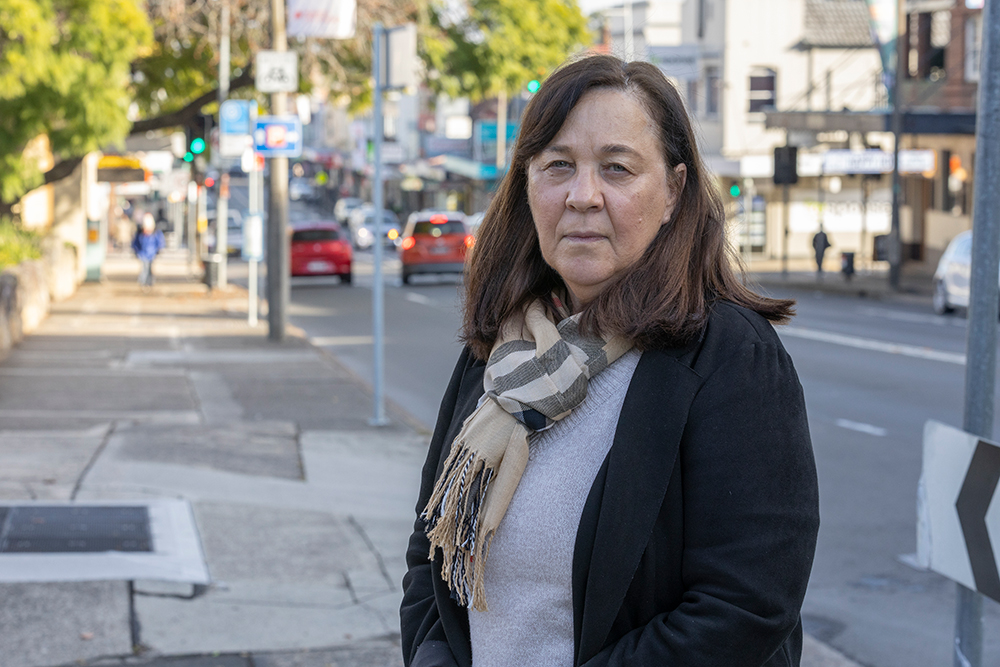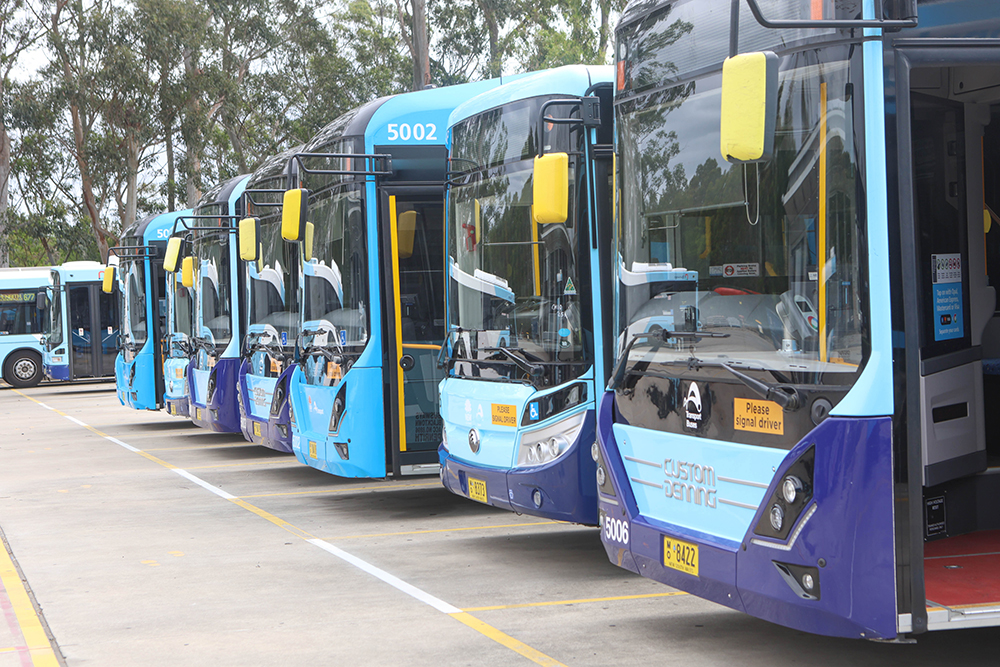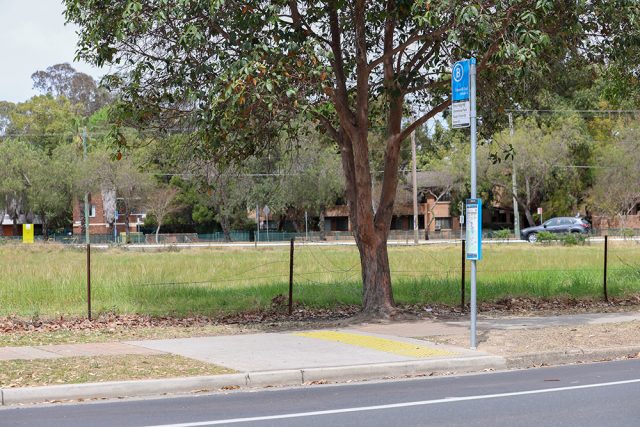Almost 70 per cent of bus stops in Penrith have no shelter, shade or seating.
The startling revelation comes as Penrith prepares to swelter through another hot summer.
And it’s prompted the Western Sydney Regional Organisation of Councils (WSROC) to demand the State Government step in and help fund better infrastructure.
Currently, local Councils are responsible for the implementation of the associated infrastructure at bus stops.
“Council has a Bus Shelter Prioritisation Program to assess and prioritise the provision of bus shelters at bus stops across our entire Local Government Area (LGA),” a spokesperson for Penrith City Council said.
“The Program is determined in conjunction with the bus operators and considers community requests, regularity of services, patronage levels and other criteria.
“Council currently allocates funding for the construction of four bus shelters each financial year on a priority basis. Council also pursues opportunities for the provision of additional bus shelters through other avenues, including developer works, state infrastructure projects and contribution plans.”

A recent study ‘The Busted Bus Stops’ report by advocacy group Sweltering Cities outlined that almost 70 per cent of the 596 bus stops in Penrith, where temperatures have been recorded to reach 50 degrees at certain times, have no shelter.
Buses account for 37 per cent of public transport trips across NSW but bus shelters are inadequate in western Sydney, according to WSROC President Councillor Barry Calvert.
“WSROC is urging the New South Wales Government to heed the recommendations of its own recent Parliamentary upper house inquiry into the Future Public Transport Needs of Western Sydney, including the urgent need to fund thousands of new bus shelters across the city with a particular focus on western Sydney,” Calvert said.
“This is especially concerning for vulnerable groups like children and the elderly, who face serious health risks from extreme heat.
“Yet, even though bus services are largely operated by private companies or by the NSW Government, it’s left to local Councils – already stretched thing – to foot the bill for bus shelters.

“This is a blatant example of cost-shifting, with local ratepayers essentially being forced to subsidise large, profit-making private transport businesses or the operations of NSW Government buses.
“Why should the residents of western Sydney, who are already grappling with extreme heat and substandard infrastructure, bear the cost of providing basic public transport amenities?”
Independent Councillor Sue Day said it was important that action was taken.
“We need the NSW Government to prioritise the immediate public transport infrastructure for existing Penrith areas,” Day said.
“It is so important to ensure that the public infrastructure provided is accessible to as many residents as possible.
“For too long, there’s been an unacceptable delay between bus infrastructure planning and provision.
“The Government has to stop shifting bus stop infrastructure to local Council, especially when most bus services are now run by private operators. It’s just not good enough that residents of Penrith have inadequate bus stop infrastructure.”

Calvert is urging the NSW Government to do more.
“It’s time for the NSW Government to step up and fund the thousands of new bus shelters western Sydney urgently needs,” Calvert said.
“Overturned milk crates with no shading will not do as ‘public transport infrastructure’ in western Sydney.”

Emily Chate
Emily Chate joined The Western Weekender in 2024, and covers local news - primarily courts and politics. A graduate of the University of Wollongong, Emily has contributed to The Daily Telegraph and worked as a freelance journalist.

